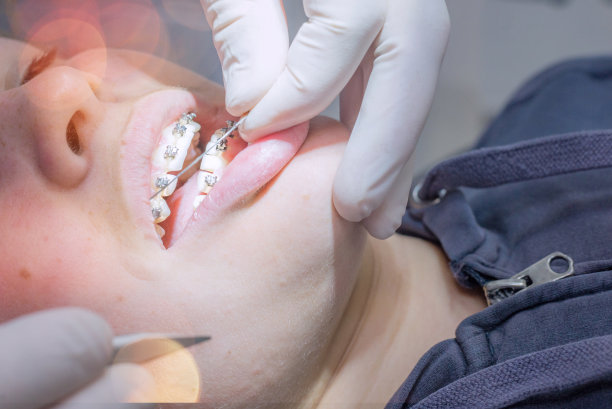Understanding Periodontal Disease Its Impact on Overall Health and Effective Strategies for Prevention and Management
Summary: Periodontal disease, an infection of the tissues that support teeth, can have profound implications on overall health. This article delves into the nature of periodontal disease, its connections to systemic illnesses, and emphasizes effective prevention and management strategies. Understanding the risk factors, clinical signs, and treatment options is essential for promoting oral and overall health. Furthermore, dietary considerations and regular dental care play pivotal roles in preventing periodontal disease. Through proactive measures, individuals can protect their oral health and mitigate the broader health risks associated with periodontal conditions.
1. Understanding Periodontal Disease and Its Causes

Periodontal disease, commonly known as gum disease, is a chronic inflammatory condition that affects the gums and bone supporting the teeth. It usually begins with gingivitis, characterized by swollen and bleeding gums. If left untreated, it can progress to periodontitis, which results in loss of tooth-supporting bone and potential tooth loss. The primary cause of periodontal disease is the buildup of plaque, a sticky film of bacteria that forms on the teeth.
Several risk factors contribute to the development of periodontal disease including smoking, certain medications, hormonal changes, and pre-existing health conditions. Genetics can also play a role; some individuals are more predisposed to periodontal disease regardless of their oral hygiene practices. Identifying these risk factors is crucial in understanding ones susceptibility to gum disease.
Additionally, lifestyle choices such as poor nutrition and inadequate dental care can exacerbate the risk of developing periodontal issues. Maintaining a balanced diet rich in vitamins and minerals is vital, as it supports immune function and helps combat inflammation, thereby reducing the likelihood of periodontal disease.
2. The Impact of Periodontal Disease on Overall Health
The effects of periodontal disease extend beyond oral health, significantly impacting overall health. Research indicates a strong connection between gum disease and various systemic conditions such as heart disease, diabetes, and respiratory diseases. The bacteria present in the mouth can enter the bloodstream, potentially leading to inflammation and exacerbating existing health problems.
Moreover, individuals with diabetes are at a higher risk for periodontal disease due to their body’s impaired ability to fight infections. Conversely, periodontal disease can make it more challenging for people with diabetes to control their blood sugar levels, creating a vicious cycle. This interrelationship underscores the importance of managing oral health proactively.
Furthermore, cardiovascular health can be influenced by periodontal disease. Studies suggest that the inflammation associated with gum disease may contribute to arterial plaque buildup, increasing the risk of heart attacks and strokes. Understanding these connections highlights the need for holistic health management that incorporates dental care.
3. Effective Strategies for Prevention of Periodontal Disease
Preventing periodontal disease largely hinges on maintaining excellent oral hygiene practices. Regular brushing and flossing help eliminate plaque buildup, effectively controlling the primary cause of gum disease. Dentists typically recommend brushing twice a day and flossing daily; however, many individuals overlook these essential practices.
Additionally, using antimicrobial mouth rinses can further reduce the bacteria levels in the mouth, serving as an adjunct to traditional brushing and flossing. These rinses can assist in reaching areas that are more challenging to clean, promoting overall gum health. Educating individuals about the importance of proper techniques can enhance routine oral hygiene significantly.
Regular dental check-ups and cleanings are another key component in preventing periodontal disease. Dental professionals can identify early signs of gum issues and provide critical interventions before they escalate into more severe conditions. Proactive monitoring ensures that individuals remain aware of their oral health status and can take timely action when necessary.
4. Effective Management Strategies Post-Diagnosis
For those already diagnosed with periodontal disease, effective management is imperative for limiting its progression. Professional treatment options range from deep cleanings, known as scaling and root planing, to surgical interventions for severe cases. These treatments aim to reduce bacterial load and restore gum health.
Home care also continues to play a crucial role in managing periodontal disease. Individuals must remain diligent with their oral hygiene routines post-treatment to maintain improvements. Providing consistent education about the disease and its management can empower patients, motivating them to adhere to necessary care regimes.
Moreover, lifestyle modifications can further support gum health. Quitting smoking, consuming a balanced diet, and managing stress levels contribute to a stronger immune response, making the body more resilient against infections, including periodontal disease. Patients should be encouraged to adopt these changes as part of their comprehensive treatment plan.
Summary: Periodontal disease poses significant risks not only to oral health but also to overall wellness. Its progression can severely impact various systems in the body, thereby necessitating effective preventive measures and management strategies. Understanding the connections between oral hygiene, lifestyle choices, and systemic health can empower individuals to take control of their health.
For better oral health, always consult with your dental professional, as they can provide personalized guidance based on your unique situation. This article is compiled by Vickong Dental and the content is for reference only.



